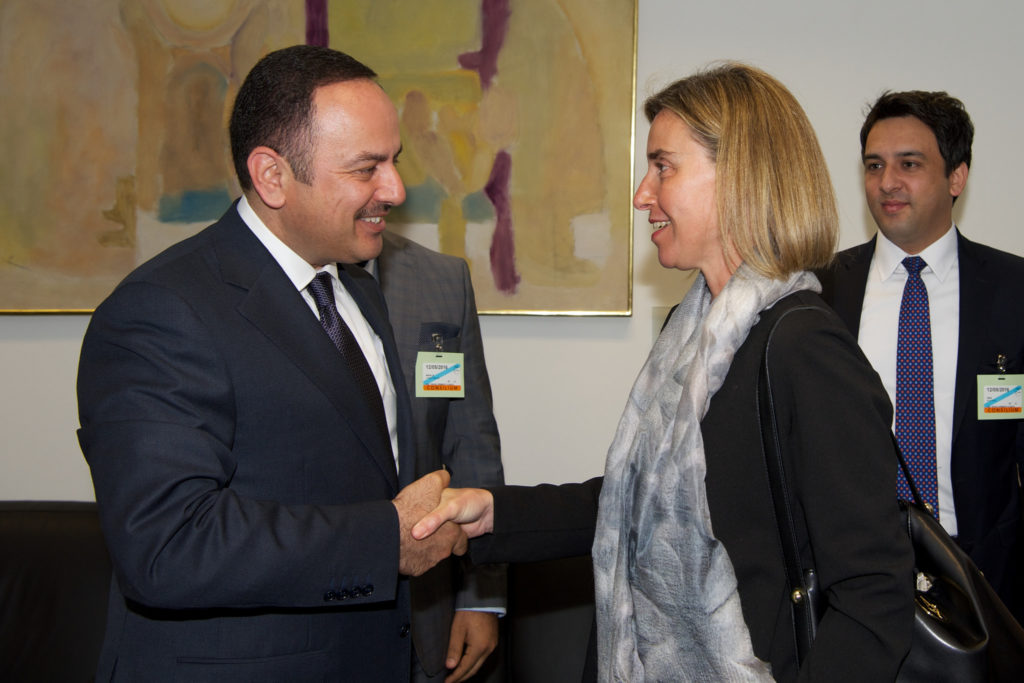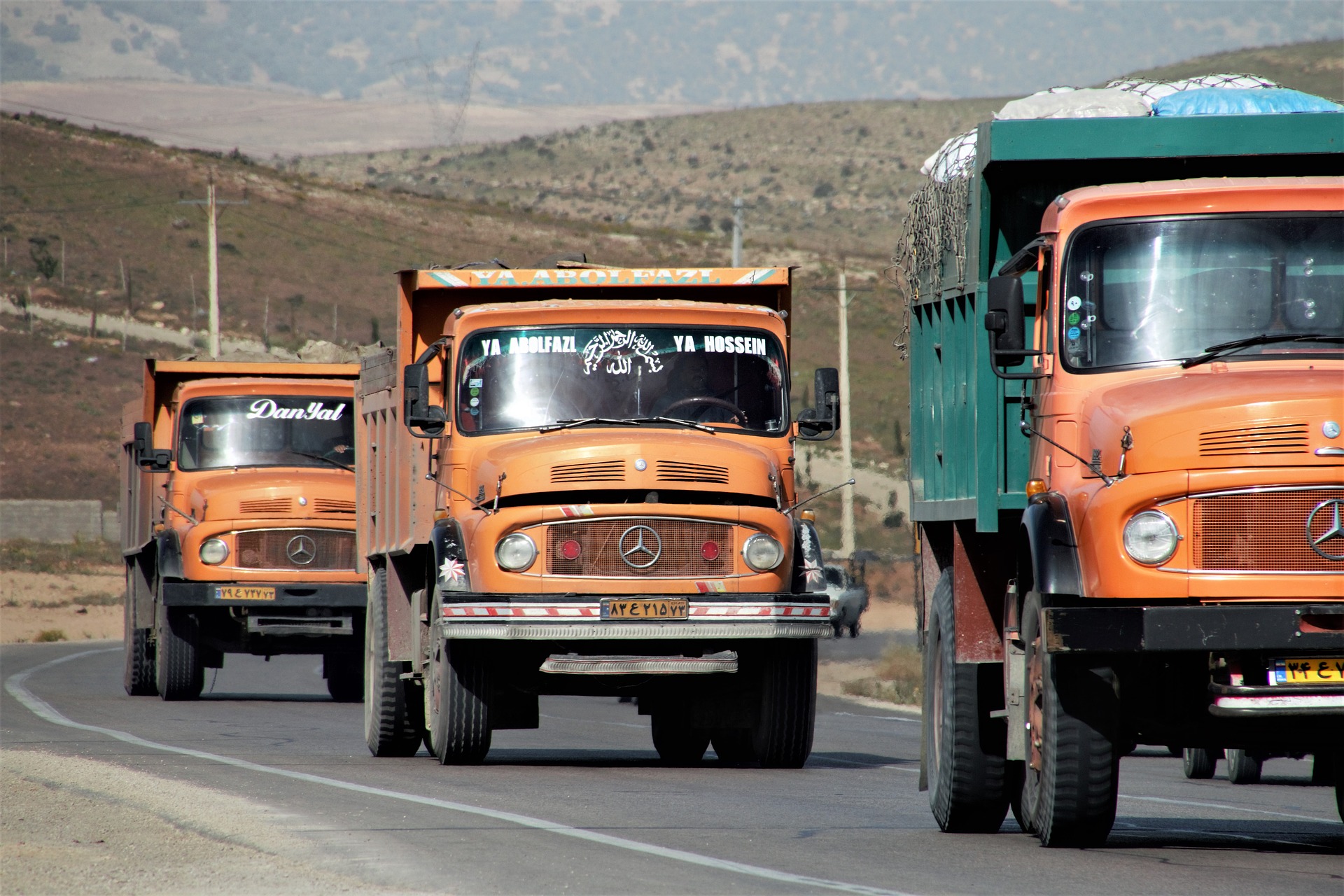
Eklil Hakimi (left) | Image by European External Action Service | Flickr
In February 2017, European Union and Afghan officials signed the Cooperation Agreement on Partnership and Development (CAPD), another step in solidifying a partnership to improve Afghanistan’s infrastructure, economy, and quality of life. This agreement comes as Afghanistan’s leaders work toward the goals of weaning the country off foreign aid and developing a strong system of government.
After signing the agreement at a conference in Brussels, Afghan Minister of Finance Eklil Hakimi told the press that it represents the EU’s long-standing commitment to the people of Afghanistan. The EU will focus on programs and projects that will bring stability and sustainability to Afghanistan.
The signing also solidified what Hakimi described as “a vital new framework for partnership between Afghanistan and the European Union.” The CAPD cements the friendship and cooperation that has been building for years as the EU works with Afghanistan to bring peace and development to the country. Hakimi called it a “new chapter” in the relationship between the two entities.
Common Goals
According to Hakimi, the CAPD grew from commitments Afghanistan and the EU made in 2011, 2012, and 2014 regarding economic development and stability in Afghanistan. Officials are working together on issues they have long been in dialog about, including human development, anti-corruption, state building, law, and migration. As part of the partnership, representatives also will regularly discuss political issues and human rights, as well as look at ways to fight crime and address security concerns, such as money laundering and the financing of terrorism.
At the Brussels meetings, officials took a significant step toward organizing joint efforts to strengthen Afghanistan. Leaders established a special working group on human rights, good governance, and migration, as well as another that will focus on economic and social development. The joint committee of EU and Afghan representatives will next meet in Kabul in 2019.
“Decade of Transformation”
The CAPD comes in the midst of Afghanistan’s “Decade of Transformation,” which began in 2015. The Afghan government has stated that while Afghanistan is a poor country, it can change with well-managed development. The country has a wealth of resources, including mineral resources and agricultural capabilities, that can be used to develop a thriving economy. In 2010, the U.S. government estimated the value of Afghanistan’s mineral deposits at as much as $3 trillion, including caches of copper, gold, ire ore and cobalt—all of which are in demand.
Income from mining natural resources will be especially important as Afghanistan moves toward self-reliance, a key goal in the work of the CAPD and the Decade of Transformation. As the country develops, Afghan officials envision a growing private sector, higher rates of job creation, and a more diverse economy. Their goal is to enable more people to have access to health care and education, and to encourage peace, stability, and prosperity.
These goals translate into a movement away from dependence on international aid as Afghanistan slowly assumes more responsibility for managing its resources and strengthening its economy.
Strengthening institutions and the economy
How Afghanistan manages its resources will be foundational to its future. History has shown that many countries rich in natural resources have grown and developed with strong institutions, but those with weak governance often fall into corruption and decline and are eventually dominated by a privileged class. Therefore, as Afghanistan builds its industries, it is imperative that it simultaneously develops a sound legal code, good fiscal policies, a commitment to transparency in government, and a strong judicial system.
Capitalizing on natural resources will also require a large skilled workforce, which the country lacks right now. To create this workforce, the country needs a stronger educational system, including both conventional schooling as well as vocational and technical education that teaches students practical skills they can use in Afghanistan’s developing industries.
The international community, including Afghanistan’s EU partners, will play a key role in helping the country establish and strengthen these key institutions and the economy. With good environmental management, Afghanistan can honor future generations by embracing safe, fiscally sound development that is sustainable over the long term.
Building comprehensive infrastructure
Afghanistan also needs strong infrastructure to support growth across all industries and economic sectors. Partnerships already are in place to build a roadway system that connects to other transportation routes across Asia, and there have also been initiatives to repair existing roads that have fallen into decline. In addition, the country could benefit from other kinds of transportation systems that carry goods and people, including rail and water transport. To pay for and maintain this infrastructure, experts say the cost can be integrated into new development projects’ budgets.
As in every country, use of public infrastructure must be regulated, and the Afghan government will need to write limits and regulations to make sure that heavy vehicles do not overuse its systems. With solid rules and vigilant enforcement, Afghan officials can make sure that these vehicles do not destroy its roads.
With these priorities in place, Afghanistan can make significant progress toward self-reliance.

